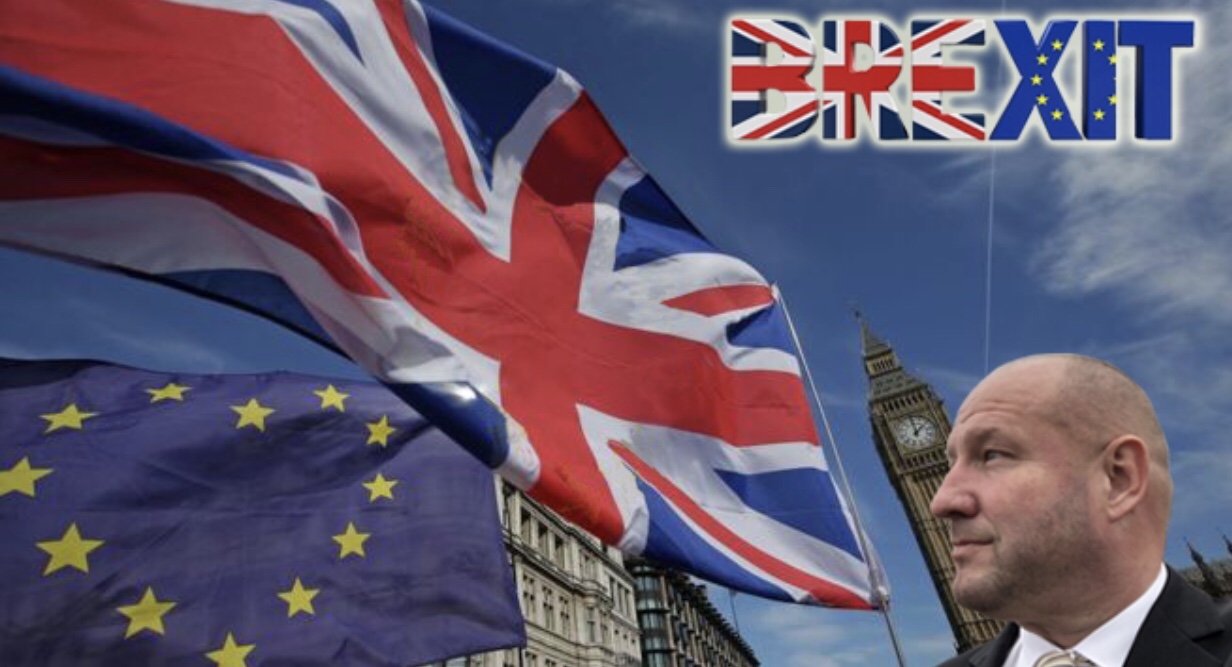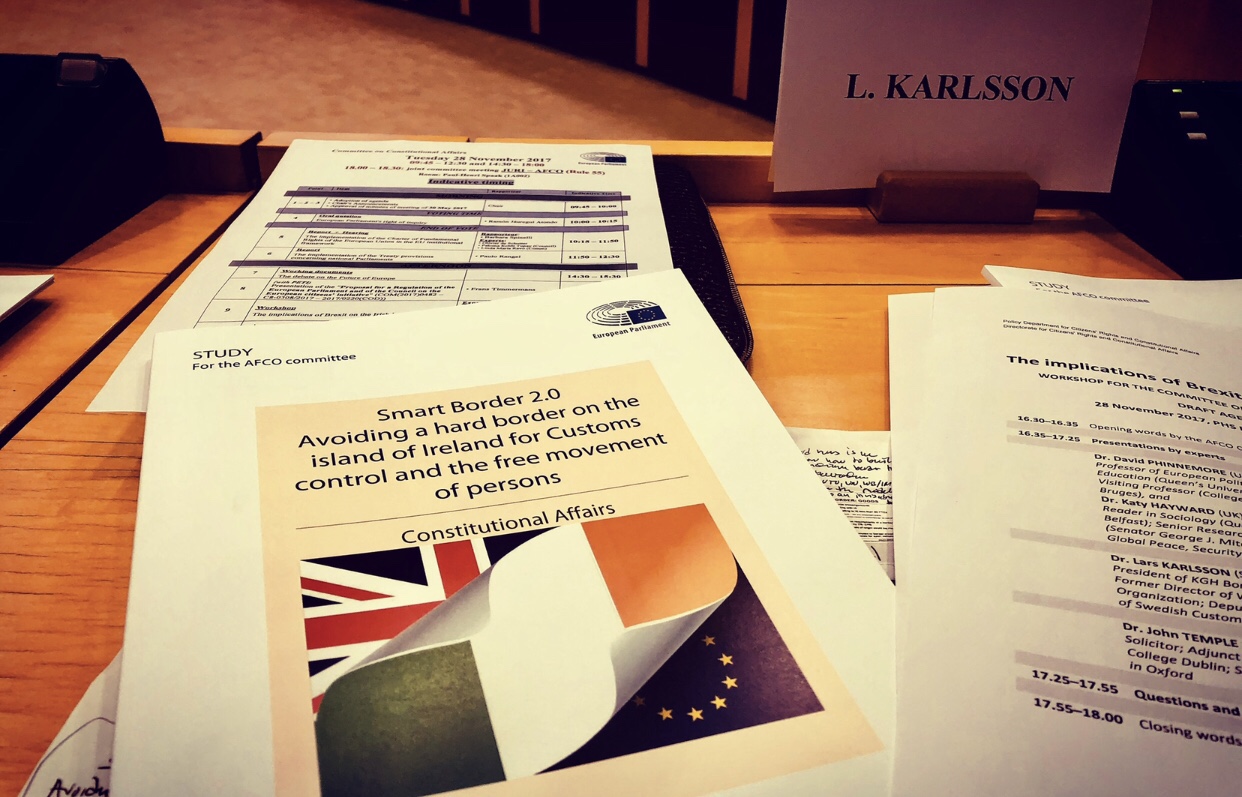Countdown: Today, October 4th, it is 176 days to Brexit
On the 29 March 2019, the United Kingdom will leave the European Union. As you know, Brexit will have a major impact on our industry.
This is the biggest Customs change in our lifetime. We in KGH are heavily involved in Brexit work and we are working in several different areas with Brexit related matters.
KGH and BREXIT
KGH is a market-leading expert on Customs and Borders. We are naturally engaged and interested in the progress of Brexit and its impact on trade, especially since we have many clients in Private Sector and Governments that will be affected by Brexit.

I have personally worked as senior advisor to both EU, European parliament Constitutional Committee on the design of future post-Brexit borders and as advisor to UK Government institutions, like e.g. the UK Parliament (House of Commons and House of Lords) etc.
Our colleagues in KGH UKI, situated in London and Manchester, are working every day to support companies getting prepared for Brexit. In addition, we help and support companies all over Europe with Brexit analysis and risk-mitigation plans. We have basically two standardized Brexit services on offer in KGH Global Consulting;
- BREXIT: Full Strategy Service (weeks), and
- BREXIT: Accelerator Service, a fixed price three day exercise (1 day workshop) SWAT analysis for the preparations already done by a company
We also do tailor-made Brexit projects for larger multinationals.

We have already now so many requests and we will soon be at the top of our capcity. I think that it is extremely important that everybody in the private sector takes their responsibility to be as ready as possible when Brexit arrives.
Preparations can be done in many different ways, but I am getting seriously worried about how many companies that are waiting to see what will happen.
In fact we already know the best and worst scenarios. This is what companies need to prepare for – and we have still not visited a single company that has been doing enough preparations even for the best of scenarios.
Capacity will be one of the biggest challenges. There is simply not enough experts around.
The advise is clear; prepare for the worst and hope for the best. The worst thing a company involved in EU-UK trade today can do is to wait and see. That is a very dangerous strategy.
Prepare for the worst and hope for the best.
We are also planning a BREXIT Symposium in Soest Germany on 20-21 November, please tell all your clients to secure your place also .
The link to the event is here: www.brexit-symposium.com (EN) and (or www.brexit-symposium.de – German version)
So what about BREXIT right now?
We have had some turbulent weeks in relation to Brexit and the clock is ticking. The extra EU Summit in Salzburg ended with a continued deadlock around the main issues.
We are in an increasing speed moving towards a no-deal leave on 29 March next year. This is now a reality. Personally, I still believe that a compromise and a deal for the withdrawal can be reached in the remaining six weeks, but it is getting increasingly difficult with every day passing.
There have also been both the Tory Party conference this week and the Labor Party conference last week and it is now likely that UK Government can continue negotiations with EU for a final attempt in finding a deal for the Irish backstop and the future relations. Then this needs to be approved both by EU and by the UK Parliament.
There are still five more weeks to go until the terms of the withdrawal needs to be agreed, even though we probably need to see some progress already at the next EU Summit in mid-October.
It is also important to remember that the on-going negotiation round is not about the details of the future border, but aiming to close an agreement on the UK withdrawal. This agreement has to include the solution for the very sensitive Northern Ireland –Republic of Ireland border, plus an acceptable basic model for future relations (trade and border).
The negotiations can due to the Brexit date in March 2019 only continue to approximately half November and in Salzburg it was decided that there will be an additional EU Summit in the second week of November to have the negotiations and agreement finalized. If possible. I am still optimistic.
Why is there a risk for a No Deal and why does it matter?
Approximately eighty percent of the withdrawal negotiations are estimated to be already finalized. So what are the main issues remaining and why are these matters so difficult?
When a country leaves a Customs Union and a Customs territory a Customs border appear. This happens whether we like it or not and it cannot be negotiated away. It is a binar element, either you are in or you are out.
We know today that trade is good since it drives development, prosperity and poverty reduction in our societies.
We have for decades developed the international trade system so it can work between all nations. The key component in the international rules and regulations, legislation, agreements and standards is the Customs border. When goods pass a customs border every Government need to know what goods, from where and to where and when it leaves the Customs territory. This decides a range of different things from tariffs to non-tariff barriers like e.g.; sanitary regulations, agriculture rules, national security, product safety etc. Therefore, we need an information flow and a control mechanism for the movement across customs borders.
New borders can be different
However, we do not have to design new borders today as we did decades ago. At that time, the national border was the first frontier to protect the people, today it is the last frontier.
Governments work on various ways to secure and facilitate the supply and value chain.
So we need to design the new UK-EU border in a non-intrusive way, we need a SmartBorder. With a SmartBorder solution it is possible to move the necessary border formalities away from the border.

SmartBorders exists already today, so it is time to design, develop and implement the most advanced SmartBorder ever between the UK and EU. Also a SmartBorder solution – like the so called MaxFac – will demand export and import declarations. The UK is calculating approx. 300 million new customs declarations a year. However, it is my opinion that this can be done in a faciliated and almost frictionless way using modern Customs and Border techniques in combination with State-of-the-Art technology.
This is what the main remaining negotiation is about, how these border formalities can be implemented when the UK leaves the European Union in a way that still makes trade work – as seamless as possible – on the island of Ireland, where we have to respect that the border formalities need to be invisible, and on all other EU-UK borders.
Is it possible? Absolutely. We have today the instruments to solve this from a model and technical perspective.
There are five weeks to go to find the solution. The clock is ticking.
What happens if a deal is not done? Then the UK leaves on 29 March 2019 without an agreement with the EU. There will be hard borders between EU and UK on all borders, including the same border process as to other third countries including a full set of export declarations, import declarations, transit movements, complementary documents etc. the WTO tariff kicks in and UK will have to use the WTO tariffs, since all existing Free Trade Agreements (FTA) disappears when leaving EU. New Free Trade Agreements can’t be negotiated until after the withdrawal.
There are estimated approx. 145.000 companies in UK only that today trade with the EU only. After BREXIT they will have to learn the EU UCC (Union Customs Code) legislation as well as the new UK customs legislation and to start using customs declarations. The number of companies on the EU side only trading with UK is enormous. It is needless to say that a no-deal Brexit vomes with risks of endless queues and congestion at the borders – even though the UK and all countries involved are doing what they can to prepare and help trade handle such a scenario.
For all companies in the UK and the EU that trade with the other body, there is only one advise to give at this moment: prepare for the worst and hope for the best – and whatever you do, start your preparations now.
You must be logged in to post a comment.